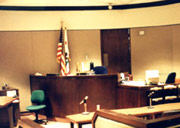|
|
|
Bush presses Japanese PM over beef trade dispute
Politics |
2007/04/28 07:58
|
| President George W. Bush pressed Japanese Prime Minister Shinzo Abe on Friday over a beef trade standoff, telling the leader in an official visit that Japanese consumers should be eating U.S. beef. "I brought up to the prime minister that I'm absolutely convinced the Japanese people will be better off when they eat American beef," Bush told a news conference while standing alongside the Japanese leader. "It's good beef; it's healthy beef. As a matter of fact, I'm going to feed the prime minister's delegation a good hamburger for lunch," he said. U.S. officials, along with the beef industry, have been pushing Japan to loosen its import rules on beef, hoping to rebuild a robust trade with the Asian nation. They want to see Japan accept meat from older animals and also seek an end to mandatory inspections of each box of beef. Currently, Japan accepts U.S. meat from animals 20 months or younger, but exporters would like to see meat shipped from animals up to 30 months old. They would also like to see a full range of beef exports — boneless and bone-in. But most industry officials do not expect any change until after a ruling next month from the World Animal Health Organization (OIE), which is expected to confirm the United States as a "controlled risk" country. U.S. beef exports to Japan were about $1.4 billion a year until 2003, when mad cow disease was discovered in the United States. For 2006, that figured stood at $66 million. Earlier this week, the Agriculture Department announced it would allow Japan to inspect U.S. beef processing plants, which puts the United States one step closer to more trade. According to Agriculture Secretary Mike Johanns, Japan will drop its mandatory inspection rule for U.S. beef shipments once those plant visits take place. Beef trade with Japan is just one instance in which U.S. agriculture interests complain trading partners fail to set import rules according to world health and safety standards. |
|
|
|
|
|
|
Ex-Justice Dept. Lawyer Under Scrutiny in Probe
Law Center |
2007/04/28 06:57
|
| A federal task force investigating the activities of disgraced lobbyist Jack Abramoff has in recent weeks been looking into whether one of Abramoff's colleagues improperly traded favors with a Justice Department lawyer, sources familiar with the Abramoff investigation said yesterday. The lawyer, Robert E. Coughlin II, resigned on April 6 as deputy chief of staff in the Criminal Division, citing personal reasons, a department spokesman said. "Bob gave a personal reason for his resignation," said spokesman Bryan Sierra. He stressed that Coughlin "had no involvement" in the department's investigation of Abramoff. Coughlin had worked in the criminal division since 2005 but was recused from the Abramoff inquiry because of a longtime personal friendship with Kevin A. Ring, one of Abramoff's lobbying colleagues whose actions are under investigation, a law enforcement source said. Investigators are looking into dealings between the two in 2001 and 2002, when Coughlin worked in the Justice Department's Office of Legislative and Intergovernmental Affairs, the sources said. Coughlin and Ring were friends on Capitol Hill in the 1990s when both worked as staffers to then-Sen. John D. Ashcroft (R-Mo.), who became attorney general in 2001. Coughlin's resignation and the surfacing of his name in the Abramoff investigation were first reported yesterday by McClatchy Newspapers. Investigators came across Coughlin's name while looking into whether Ring improperly sought or received favors for lobbying clients from people in government, the sources told The Washington Post. Ring took Coughlin to sporting events with tickets provided by his lobbying firm, according to sources familiar with the inquiry. The task force has tracked millions of dollars in meals, trips, tickets, gifts and campaign contributions that the Abramoff lobbying team lavished on lawmakers and staffers. The investigation has so far resulted in 11 convictions and guilty pleas from lobbyists, staffers, two administration officials and a congressman. An attorney for Ring could not be reached for comment. Coughlin did not answer calls to his home yesterday, and a lawyer who is serving as his spokesman did not return phone calls seeking comment. Coughlin is the second Justice Department official whose name has surfaced in the wide-ranging Abramoff investigation. Earlier this year, Sue Ellen Wooldridge, deputy assistant attorney general for environment and natural resources, abruptly resigned when her boyfriend -- now her husband -- was notified that he was a criminal target. J. Steven Griles, former deputy secretary of the Interior Department, has since pleaded guilty to lying to Congress about Abramoff.
|
|
|
|
|
|
|
Anti-Spam Lawsuit to Be Filed in Virginia
Court Watch |
2007/04/28 06:53
|
| An anti-spam organization filed a federal lawsuit Thursday targeting so-called spam harvesters, who facilitate the mass distribution of junk e-mail by trolling the Internet and collecting millions of e-mail addresses. The lawsuit was filed in U.S. District Court in Alexandria by a Utah company called Unspam Technologies Inc. The company runs a Web site called Project Honey Pot dedicated to tracking spam harvesters worldwide. Project Honey Pot has collected thousands of Internet addresses that it has linked to spam harvesters, but it so far has been unable to link those addresses to an actual person. The lawsuit names a variety of John Does as defendants, and the plaintiffs hope that the legal process will allow them to track the actual people who are harvesting the e-mail addresses, said lead attorney Jon Praed with the Arlington-based Internet Law Group. Collecting e-mail addresses is not by itself illegal, but Praed said the plaintiffs will be able to link the harvesting to spam e-mails, which are illegal under federal and state laws. Those laws allow individuals who receive unwanted spam to seek civil damages. Praed said legitimate businesses are afraid to post e-mail addresses on their Web sites for fear that automated Web crawlers will find the addresses, record them and sell them to spammers who will inundate them with junk e-mail. |
|
|
|
|
|
|
The Cochran Firm joins suit over tot's death
Legal Business |
2007/04/28 04:55
|
The law firm founded by the late Johnnie Cochran Jr. has joined the team representing a woman whose toddler was shot to death during in a gunbattle between the child's father and a police SWAT team, according to court papers.
Brian Dunn of The Cochran Firm filed papers this week, saying he has joined attorney Luis Carillo in representing Lorena Lopez. Carillo filed a wrongful-death lawsuit on Lopez's behalf against the city of Los Angeles, Police Chief William Bratton and other police officers. The Cochran Firm has filed numerous lawsuits against law enforcement, including cases that involved officer shootings. Nineteen-month-old Suzie Pena was killed by a police bullet as SWAT officers exchanged fire with her father, Jose Raul Pena, in 2005. Authorities said that Pena, who also was killed, used the child as a shield during the gunbattle. In a court hearing Friday, Superior Court Judge Rolf M. Treu denied Carrillo's motion to review investigative reports and witness statements. Deputy City Attorney Christian Bojorquez had argued the documents were confidential. The civilian Police Commission last year ruled that two officers who fired their weapons early in the standoff violated the department's use-of-force policy. The district attorney's office declined to file charges against the officers involved in the standoff and shooting, saying they acted lawfully in defense of themselves and others. |
|
|
|
|
|
|
Katrina evacuated real estate agent fights lawsuit
Insurance |
2007/04/28 04:52
|
| Danette O'Neal is among about 40-thousand real estate agents along the Gulf Coast who lost their homes and/or businesses to Hurricane Katrina. Many from the region, including O'Neal who now lives in Lithonia, are trying to start over in other markets. But O'Neal's state of limbo is partly due to a federal lawsuit that she's fighting as Coldwell Banker Real Estate Corporation tries to collect more than 818-thousand dollars in franchise fees, ten years of potential income and other costs from the displaced realtor. Coldwell Banker spokesman David Siroty says the case is about O'Neal's -- quote "refusal to pay royalty fees and return a sizable development advancement loan," both of which date back to 2004, the year before the storm. Siroty says the case predates the hurricane, though the lawsuit also claims O'Neal continued to use Coldwell Banker trademarks and business systems after she abandoned the franchise system in late 2005. Between court dates in Louisiana, O'Neal says she barely has time to build relationships with new loan officers, mortgage brokers or clients. Her cell phone constantly rings, and the calls are about new court motions as often as they are about potential business. O'Neal started Danette O'Neal Realtors 16 years ago. She staked her business on helping black residents of New Orleans -- people of modest means and often less than perfect credit -- to become homeowners. In 2004, she says the agreed to partner with Coldwell Banker, but the arrangement wasn't as profitable as O'Neal had hoped. She says the franchise fees -- six percent of the commission -- were too much for her small business. Coldwell poured 263-thousand dollars into O'Neal's business. She says she did not expect to have to pay the money back. Within a month of Katrina, O'Neal said Coldwell sent a letter counting her franchise as a total loss. Typically, attorneys say, abandonment of a franchise is a breach of contract. |
|
|
|
|
|
|
German Lawyer To File Rumsfeld Abuse Suit In Spain
International |
2007/04/28 03:58
|
A German lawyer is planning to join forces with Spanish counterparts to file a lawsuit in Spain against former U.S. Defense Secretary Donald Rumsfeld over the alleged abuse of detainees at Abu Ghraib and Guantanamo prisons, a German magazine reported on Saturday.
The move by Berlin lawyer Wolfgang Kaleck comes after German prosecutors said on Friday they had decided against launching an investigation into Rumsfeld over the abuse claims. "There is no safe haven for Rumsfeld," weekly magazine Der Spiegel quoted Kaleck's associate, Michael Ratner, as saying. "If the Germans aren't bold enough then we'll try in Spain," he added. Kaleck could not be reached for comment on Saturday. Civil rights groups filed a suit with Germany's Federal Prosecutors Office in Karlsruhe in November seeking war crimes charges, arguing Germany could prosecute foreign violations of international law under its 2002 universal jurisdiction law. The Center for Constitutional Rights (CCR) said 11 Iraqi citizens held at Abu Ghraib in Iraq and one Saudi detainee at the U.S. Guantanamo Bay base on Cuba were victims of beatings, sleep and food deprivation and sexual abuse. However, the German prosecutors office said it could not open an investigation as the individuals in question were not present in the country. In addition to Rumsfeld, the suit named 13 other U.S. officials, including Attorney General Alberto Gonzalez, former CIA director George Tenet and high-ranking military officers. The 13 others will also be named in the Spanish suit, Der Spiegel said. |
|
|
|
|
|
|
UGA settles harassment lawsuit involving athletes
Breaking Legal News |
2007/04/28 02:51
|
The University of Georgia reached an out-of-court settlement with a former student who filed a 25 million dollar sexual harassment lawsuit. The woman -- Tiffany Williams -- claimed U-G-A officials were slow to respond to an alleged assault involving three athletes. The lawsuit revolves around a 2002 claim that she had consensual sex with former Georgia basketball player Tony Cole in her dorm room. Afterward she told police that former basketball player Steve Thomas and ex-football player Brandon Williams sexually assaulted her. The lawsuit claimed that school officials exposed her to danger by recruiting Cole even though they knew he had a history of sexual misconduct. U-G-A attorney Ed Tolley said the settlement was six figures but he did NOT specify the precise figure. Brandon Williams was acquitted of any wrongdoing and criminal charges against Cole and Thomas were dropped.
|
|
|
|
|
|
|
Class action or a representative action is a form of lawsuit in which a large group of people collectively bring a claim to court and/or in which a class of defendants is being sued. This form of collective lawsuit originated in the United States and is still predominantly a U.S. phenomenon, at least the U.S. variant of it. In the United States federal courts, class actions are governed by Federal Rules of Civil Procedure Rule. Since 1938, many states have adopted rules similar to the FRCP. However, some states like California have civil procedure systems which deviate significantly from the federal rules; the California Codes provide for four separate types of class actions. As a result, there are two separate treatises devoted solely to the complex topic of California class actions. Some states, such as Virginia, do not provide for any class actions, while others, such as New York, limit the types of claims that may be brought as class actions. They can construct your law firm a brand new website and help you redesign your existing law firm site to secure your place in the internet. |
Law Firm Directory
|
|








